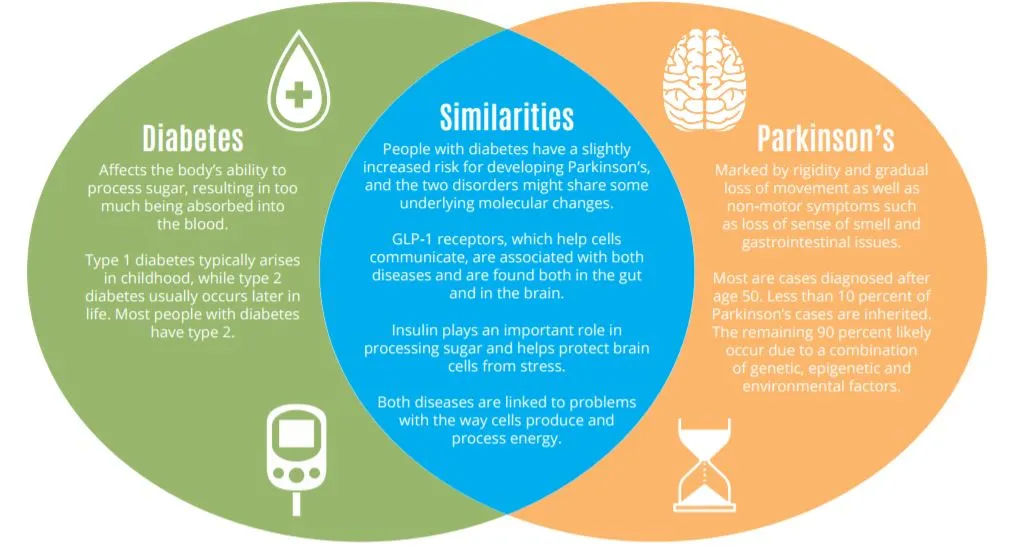People with type 2 diabetes may present a greater risk of having a diagnosis of Parkinson's disease later in life, according to a large study published in 'Neurology' on June 13, 2018, the Medical Magazine of the American Academy of Neurology.
In addition, the risk may be greater for younger people and those with complications of pathology.
Parkinson's is a progressive disorder that affects a part of the brain that helps control the movement.In type 2 diabetes, a person does not produce enough insulin to effectively convert blood sugar or cells do not use insulin as well as they should.
"Our study examined the data of a large part of the English population and found a strong link between these two seemingly different diseases," says study author Thomas T. Warner, of the 'University College London' (UCL), in the United Kingdom."Whether genetics plays a role in the development of these diseases or that they have similar ways for development, it is necessary to investigate more thoroughly," he says.
For the study, the scientists analyzed the data in a hospital database nationwide in England for 12 years and identified more than 2 million people who entered the hospital for type 2 diabetes for the first time.Then, they were compared with more than 6 million people without diabetes who entered a hospital for a variety of minor medical and surgical procedures, such as sprains, varicose veins, appendectomy and hip replacement.
Of the more than 2 million people with diabetes, 14,252 had a diagnosis of Parkinson's disease during a subsequent hospital admission, compared to 20,878 of the more than 6 million people without diabetes who were subsequently diagnosed by Parkinson's diagnosis.
Greater Parkinson's risk in younger diabetics
After excluding the conditions that simulate Parkinson's disease and adjust by age, sex, where participants lived, frequency of hospital income and monitoring duration, scientists found that those with type 2 diabetes had 31 percent more risk of diagnosisposterior Parkinson's disease than those without diabetes
The authors found that the risk of being diagnosed with Parkinson's disease later in life was even greater for younger people, from 25 to 44 years.In that group, 58 of 130,728 people developed Parkinson, compared to 280 of 2,559,693 in the group of people without diabetes, which after the adjustment was equivalent to a four -time risk for people with diabetes.
As a comparison, among those who were 75 years old or more, there were 7,371 people of 664,709 people with diabetes that developed Parkinson's in front of a total of 10,105 of 752,104 in the group of people without diabetes, which after adjustment represented a 18 percent higher riskthat for those without diabetes
In addition, those with diabetes complications had 49 percent more risk of a posterior diagnosis of Parkinson's disease than people without the disease, while those without diabetes complications had 30 percent more likely to develop Parkinson'sthan those without the disease.
"Restoring the ability of the brain to use insulin could have a protective effect on the brain-says Warner-. It is possible that a link between type 2 diabetes and Parkinson can affect the future diagnosis and treatment of these diseases."A limitation of the study was that researchers could not adjust the results of medicines and smoking and that, being a hospital study, it is possible that people diagnosed with diabetes may have hadA more serious form of the disease.


